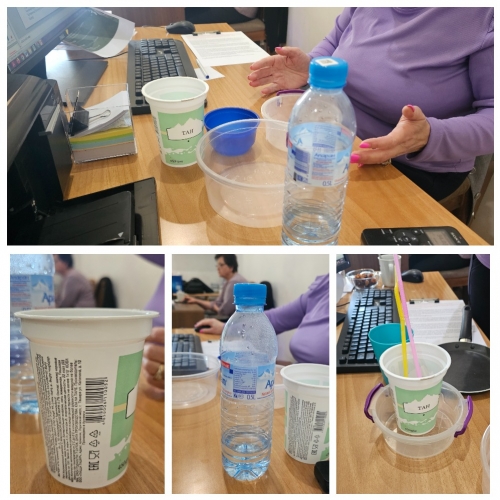

Plastic has become an inseparable part of our lives. Plastic is in shops, in our refrigerators, in our bags, and microplastics are also in the air, water, and our food. Yet, experts warn — plastic harms human health.
“Our studies show that while plastic used to be primarily based on polyethylene, over the years various additives have been introduced, making it more heat-insulating, flame-retardant, UV-resistant, and durable. Some substances, on the contrary, make plastic items softer and more flexible.
These substances affect human health. They cause reproductive dysfunction, hormonal disorders, and allergic reactions,” said Knarik Grigoryan, expert at ‘Armenian Women for Health and a Healthy Environment’ NGO, in her interview with Ecolur. “A new convention on plastic pollution is currently being developed, which will focus on plastic contamination, human health, and environmental cleanliness,” said Gohar Khojayan, Communications Specialist at the same NGO.
The ‘Armenian Women for Health and a Healthy Environment’ NGO, within the framework of the project “Public Awareness and Educational Activities on the Prevention, Minimization, and Recycling of Plastic Waste in Eastern Europe, the Caucasus, and Central Asia”, aimed at reducing plastic pollution and its impact on the environment and human health, has studied and found that Armenia imports a greater quantity of plastic raw materials and products than it exports.
In addition to raw materials, plastic waste is also imported into Armenia. Between 2019-2022, the highest volume of imported plastic waste was recorded in 2021 - 452.5 tons.
In 2022, imports decreased by about 58%, reaching 191.5 tons.
The NGO conducted a survey among 327 people in Yerevan, Kotayk, and Lori. According to the results, 70.3% of respondents frequently use single-use plastic products, while 71.9% dispose of used plastic items in garbage bins. “Plastic burns in landfills due to the effect of other organic materials, releasing a significant amount of dioxins. Dioxins cause cancer,” said Knarik Grigoryan.
In Armenia, 17 large and 122 small enterprises are engaged in plastic production. A portion of these products is used for packaging. The issue of packaging waste should be regulated within the framework of the Law on Extended Producer Responsibility, the draft of which is currently under discussion.


October 20, 2025 at 18:30
